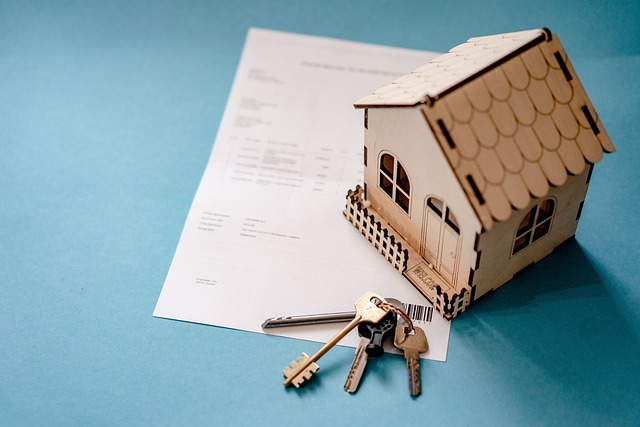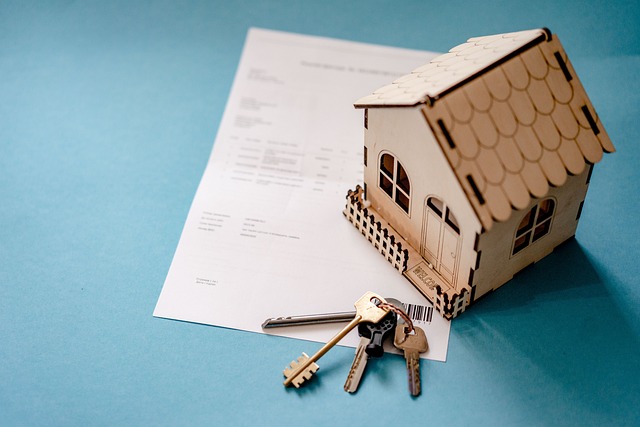Foreigners can invest in Singapore property through residential or commercial properties, REITs, or CISs but must navigate strict rules and regulations. Key steps include meeting visa/work permit requirements, demonstrating financial stability, understanding tax implications, consulting experts, researching areas, preparing documentation, and considering diversification for long-term growth. Singapore's robust economy and favorable policies make it an attractive market for foreign real estate investors who strategically navigate its permits, restrictions, and market dynamics.
Planning to invest in Singapore’s real estate market? Discover the ins and outs of buying property as a foreigner. This comprehensive guide uncovers everything from understanding stringent foreign ownership rules, navigating eligibility criteria for non-citizens, and legal considerations, to exploring popular areas and property types. Learn how to budget effectively, understand tax implications, build a robust portfolio, and successfully acquire your dream investment in the Lion City.
- Understanding Foreigner Property Ownership Rules in Singapore
- Eligibility Criteria for Non-Citizens to Purchase Real Estate
- Legal Considerations and Requirements for Foreign Investors
- Popular Areas and Property Types for International Buyers
- Financial Planning and Budgeting for a Successful Investment
- The Process of Acquiring Property: Step-by-Step Guide
- Tax Implications and Benefits for Foreign Property Owners
- Building a Portfolio: Strategies for Long-Term Growth
- Conclusion: Key Takeaways for Foreign Investors in Singapore
Understanding Foreigner Property Ownership Rules in Singapore

In Singapore, foreigners have the option to invest in property through various avenues such as buying residential or commercial properties, participating in real estate investment trusts (REITs), or contributing to collective investment schemes (CISs). However, there are specific rules and regulations that govern foreign ownership. The Housing & Development Board (HDB) and the Urban Redevelopment Authority (URA) closely monitor property transactions to ensure a balance between meeting the housing needs of Singapore residents and facilitating legitimate foreign investments.
Understanding these rules is crucial for foreigners considering property purchases in Singapore. For instance, there are restrictions on land types and areas where foreigners can buy properties, as well as minimum purchase requirements and eligibility criteria. Additionally, taxes like stamp duties and property tax must be paid, while capital gains tax applies when selling a property. It’s important to consult with local real estate agents or legal professionals who specialize in foreign property ownership to ensure compliance with these rules, making your investment journey in Singapore a smooth and successful one.
Eligibility Criteria for Non-Citizens to Purchase Real Estate

In Singapore, foreigners can indeed buy property, but there are specific criteria to meet before diving into the real estate market. Non-citizens interested in purchasing real estate must first obtain a valid visa or work permit, ensuring they are allowed to reside and conduct business in Singapore for an extended period. This is a fundamental requirement set by the country’s authorities to gauge the seriousness of potential buyers.
Additionally, financial stability plays a significant role. Foreigners need to demonstrate sufficient funds to support their investment and living expenses. Lenders typically require extensive documentation, including proof of income, bank statements, and sometimes even tax returns. These measures ensure that property purchases are sustainable and do not strain the local economy.
Legal Considerations and Requirements for Foreign Investors

When considering investing in property in Singapore as a foreigner, understanding the legal framework is paramount. The government has established specific rules and regulations to ensure transparency and fairness for all investors, regardless of nationality. These guidelines cover various aspects, including ownership rights, property types, and investment limits. For instance, foreigners are permitted to own properties through companies or individually, with different requirements for residential and commercial spaces.
Key legal considerations include obtaining the necessary approvals from the relevant authorities, such as the Urban Redevelopment Authority (URA) for land purchases. Foreign investors must also be aware of the foreign exchange controls and tax implications. The Monetary Authority of Singapore (MAS) oversees foreign investment, ensuring compliance with regulations. Additionally, understanding the legal system and consulting professionals who specialize in international real estate investments is advisable to navigate these requirements smoothly.
Popular Areas and Property Types for International Buyers

When considering investing in property in Singapore, foreigners often seek areas that offer a balance between lifestyle and potential capital growth. Popular choices include central business districts like Marina Bay and Orchard Road, known for their vibrant cityscape and easy access to amenities. These locations are attractive due to strong economic prospects and high rental demand from both locals and expatriates.
In terms of property types, apartments and condos dominate the foreign investor landscape in Singapore. These properties appeal due to their relative affordability compared to freehold homes, especially in prime districts. Moreover, Singapore’s robust condominium market provides a wide range of options, catering to different budgets and preferences, from luxurious high-rises to more affordable, well-designed studio units.
Financial Planning and Budgeting for a Successful Investment

When considering investing in property in Singapore, especially as a foreigner, meticulous financial planning and budgeting are paramount. Understanding that the process involves significant capital outlay, potential legal implications, and market fluctuations requires a comprehensive strategy to ensure success. Begin by assessing your financial capabilities and setting realistic investment goals.
Consider factors like your current income, savings, and any existing investments. Allocate a budget that accounts for not just the property purchase price but also associated costs such as taxes, legal fees, maintenance, and potential renovation expenses. A well-thought-out plan will help you navigate the competitive Singapore real estate market while adhering to relevant regulations regarding foreign ownership, thus ensuring a smoother journey in your quest to buy property in Singapore.
The Process of Acquiring Property: Step-by-Step Guide

Acquiring property in Singapore as a foreigner involves a structured process, breaking down complex procedures into manageable steps. Firstly, conduct thorough research to identify areas that align with your preferences and budget. Singapore offers diverse real estate options, from high-rise apartments to exclusive condos, each presenting unique advantages. Engage reputable local agents or consult legal professionals who specialize in foreign investments for guidance on the best locations and property types.
Next, understand the necessary documentation and requirements. Foreigners must meet specific criteria set by the government, including proof of funds, employment status, and sometimes a minimum investment threshold. Prepare all required documents meticulously, ensuring they are accurate and up-to-date. This step is crucial for a smooth transaction process, as it demonstrates your financial stability and commitment to the purchase.
Tax Implications and Benefits for Foreign Property Owners

When considering investment in properties in Singapore, foreigners should be aware of the tax implications and potential benefits that come with property ownership. Singapore has a straightforward and transparent tax system, which is one of its key attractive factors for foreign investors. Income generated from renting out properties is subject to income tax, with rates varying based on the type of property and rental income level. There are also stamp duties and other fees associated with purchasing property in Singapore that foreigners must be aware of.
However, owning property in Singapore can offer several advantages from a tax perspective. Foreigners may qualify for certain tax concessions and exemptions, especially if they meet specific criteria such as being a long-term resident or engaging in business activities in the country. Additionally, capital gains taxes on the sale of properties are generally favorable, with lower rates compared to some other jurisdictions. Understanding these tax implications is crucial for foreigners looking to invest in Can Foreigners Buy Property In Singapore, ensuring they make informed decisions that align with their financial goals and local regulations.
Building a Portfolio: Strategies for Long-Term Growth

Building a property portfolio in Singapore, especially for foreign investors, offers a strategic approach to long-term growth. Diversification is key; consider investing in various types of properties across different locations and price segments. This reduces risk and ensures stability in your investment journey. For instance, you might opt for a mix of apartments, commercial spaces, or even land plots, each with its own potential for appreciation.
A well-rounded portfolio can benefit from the diverse real estate landscape in Singapore. The city-state’s property market is known for its resilience and strong demand, driven by both local and international buyers. By strategically acquiring properties, you can capitalize on these trends, ensuring that your investments not only hold their value but also appreciate over time. Remember, a long-term perspective is vital when planning in this sector, as it allows you to navigate market fluctuations and secure substantial returns from the Can Foreigners Buy Property In Singapore market.
Conclusion: Key Takeaways for Foreign Investors in Singapore

In conclusion, Singapore presents a compelling case for foreign investors in the real estate market with its robust economy, strong legal framework, and welcoming policies towards property ownership for foreigners. Understanding the nuances of the local laws and regulations is key to navigating this landscape successfully. Foreigners interested in purchasing property in Singapore should familiarize themselves with the various types of permits and restrictions, such as the Foreigner Domestic Helper (FDH) or Employment Pass requirements, which can impact their investment choices.
Additionally, staying informed about market trends, tax implications, and potential returns is essential for making informed decisions. Singapore’s diverse and vibrant property scene offers a range of options, from luxury condos to affordable housing, catering to various investor preferences. By carefully considering these factors and seeking professional advice when needed, foreigners can make strategic investment moves in the Can Foreigners Buy Property In Singapore market, reaping benefits from this thriving urban environment.
